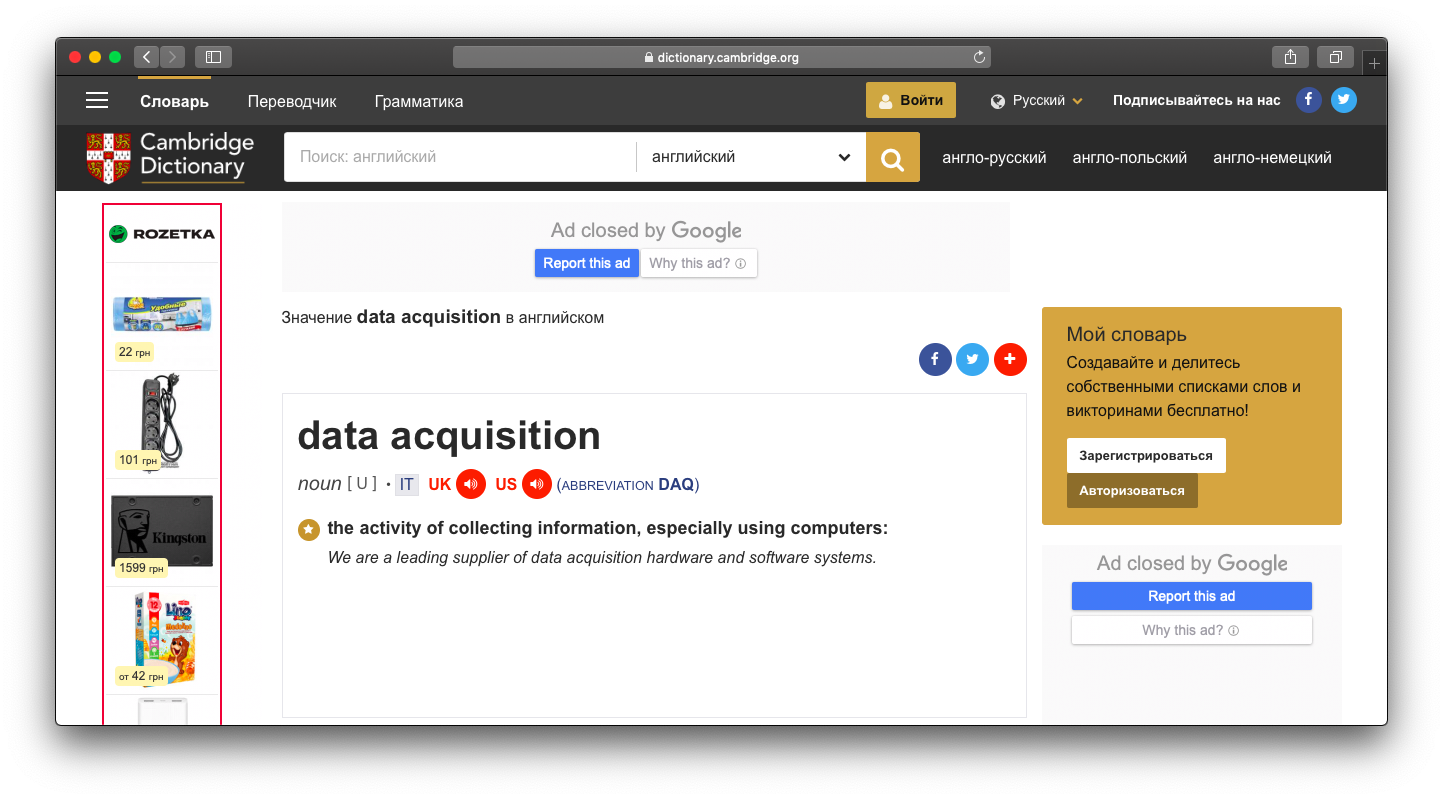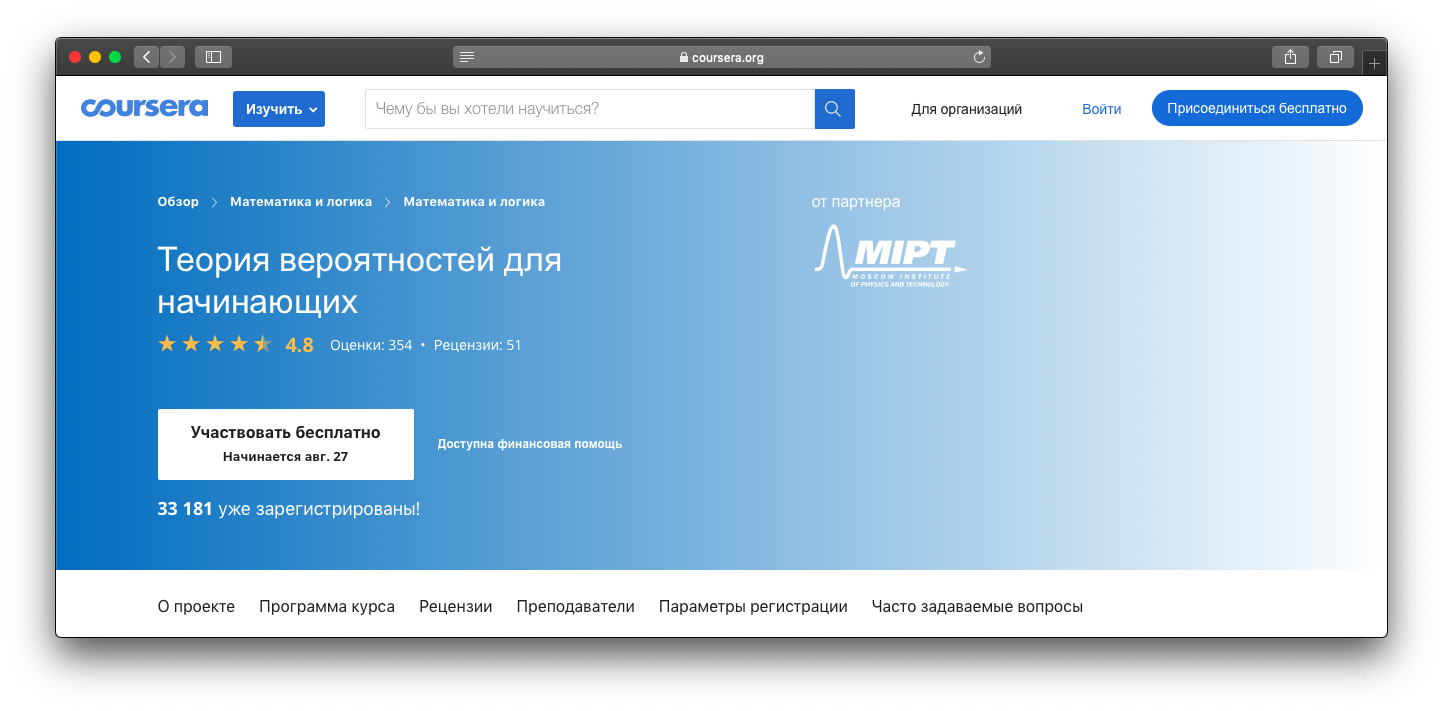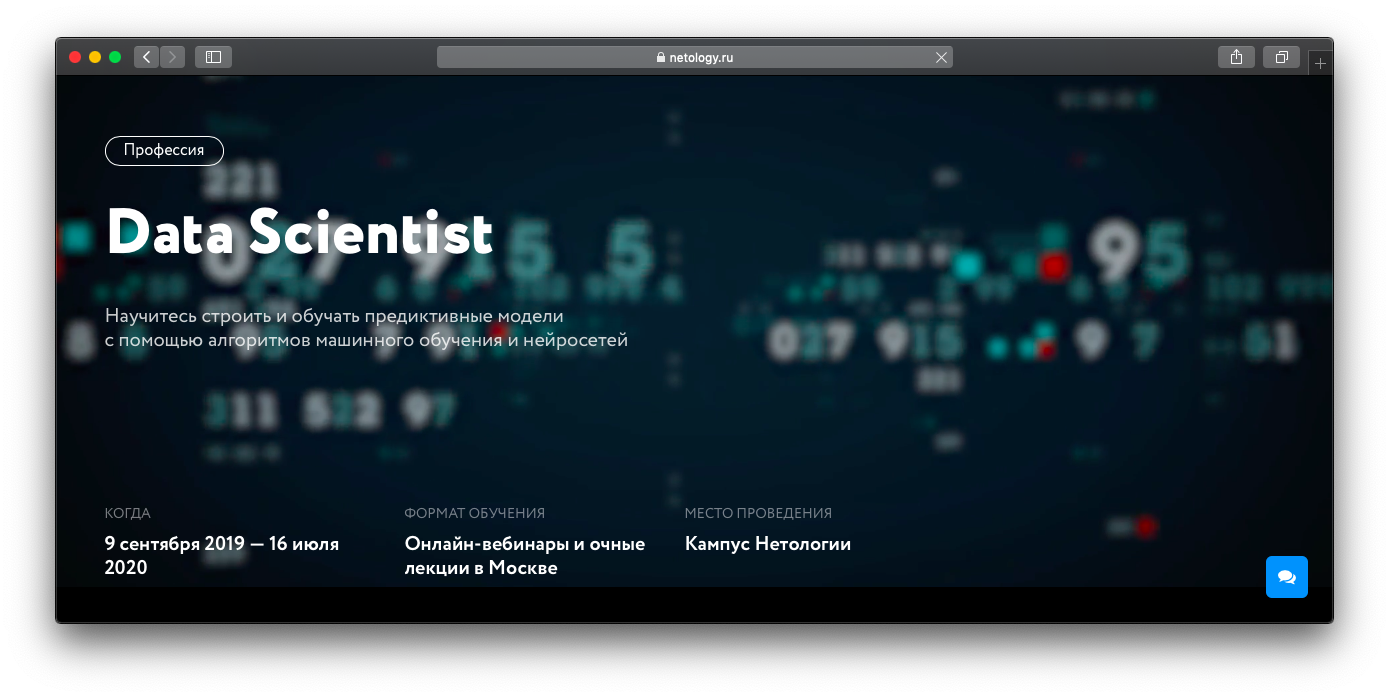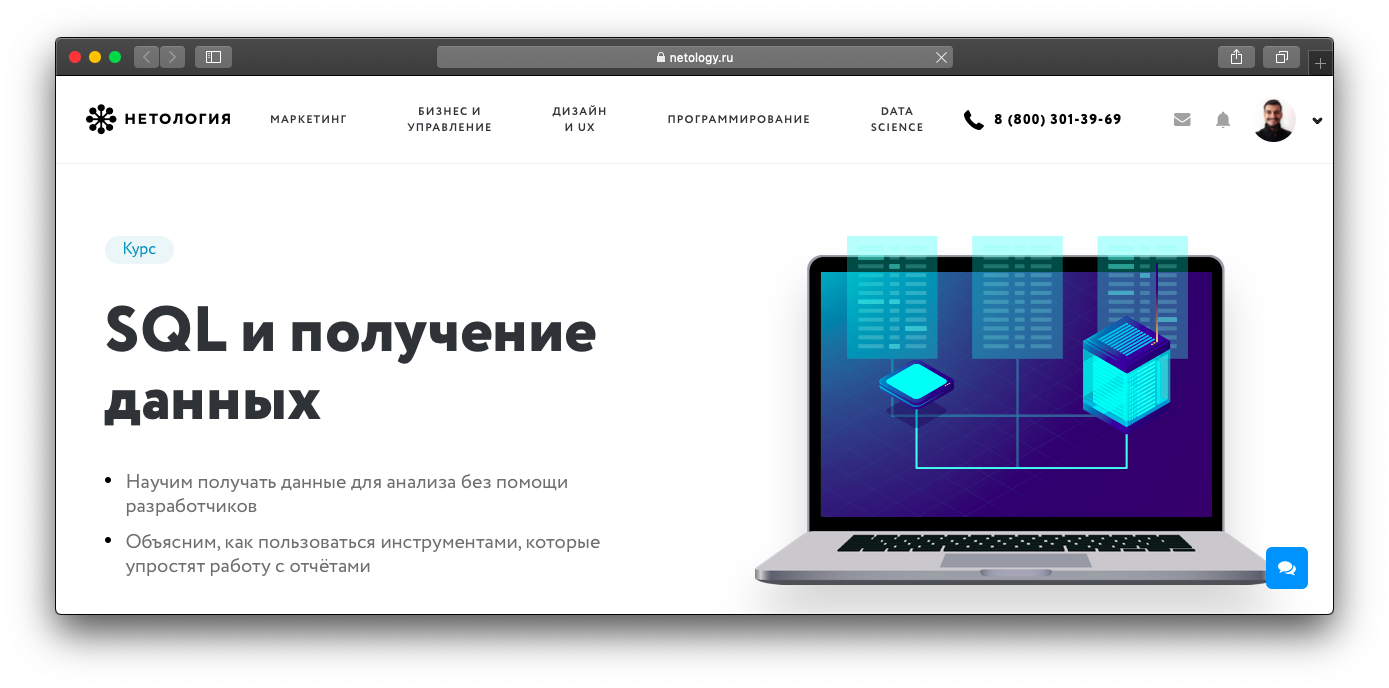What to read and see for a start in Data Science: books, dictionaries and courses
A selection of resources in mathematics, statistics and programming for beginners Date Scientists. Check out the materials if you plan to study online courses. So you get ahead of classmates, and at the same time pump over a useful skill - to study additional materials yourself.
Most of the materials in the collection are in English. Therefore, first of all, you need to understand the technical vocabulary and learn to understand complex terms. These resources will help you navigate the technical literature if your level of English is intermediate or below average.

Cambridge dictionary
First of all, learn to quickly master any mathematical concepts. The How to Learn Mathematics Fast tutorial will help with this.
Boost math thinking and learn:
To see the versatility of mathematics, check out Edward Frenkel's series of workshops Mathematics: the language of nature .
The following resources will help refresh the basic concepts of mathematics:

Probability Theory Course at Coursera
Task with an asterisk. To further master your knowledge of matrix algebra, take the challenging MIT Linear Algebra course.
For training in the Net Scientology Data Scientist course, a basic knowledge of statistics is sufficient. They can be obtained from the Statistics and probability section of the Khan Academy. For a complete list of statistics topics that we will cover during training, see The 10 Statistical Techniques Data Scientists Need to Master . For admission, it is not necessary to understand them in detail, but it is better to get a general idea.

Net Scientology Data Scientist Course
Task with an asterisk. Additionally, it is worth taking the Statistics for Applications course from MIT, but for this you need to understand:
Students at Data Scientist write Python code. To write code during training, it is enough to master the basic concepts of the language: operators, data types, variables, loops, functions, classes. The following resources will help you quickly understand the basics and practice on your own:
If you want to understand Python in more detail and under the guidance of a mentor, you can take the Python for Data Analysis course in parallel.

To think in the context of data, you need to understand how relational data bases are structured and work. To do this, it’s enough to master the basics of SQL - to take the third week of the course on the basics of data analysis for business from the University of Colorado in Boulder. You can practice knowledge in the following tasks:
In-depth knowledge of databases can be obtained on the course "SQL for analytics."

Technical English
Most of the materials in the collection are in English. Therefore, first of all, you need to understand the technical vocabulary and learn to understand complex terms. These resources will help you navigate the technical literature if your level of English is intermediate or below average.
- Cambridge Dictionary is an explanatory dictionary that helps you understand the meaning of words and phrases.
- A selection of abbreviations that are often used in Data Science, with decryption.
- Glossary of Data Science and Machine Learning.

Cambridge dictionary
Maths
First of all, learn to quickly master any mathematical concepts. The How to Learn Mathematics Fast tutorial will help with this.
Boost math thinking and learn:
- Introduction to Mathematical Thinking by Kate Devlin;
- How to Develop a Mindset for Math and Learning to Learn: Math Abstraction guides;
- Quora thread How do math geniuses understand extremely hard math concepts so quickly? ;
- Devlin's Angle publication What is conceptual understanding?
To see the versatility of mathematics, check out Edward Frenkel's series of workshops Mathematics: the language of nature .
Additional theory and practice in mathematics
The following resources will help refresh the basic concepts of mathematics:
- Derivative - Derivatives introduction lesson from Khan Academy;
- in vector algebra - a course on linear algebra of the Higher School of Economics from Coursera (seventh week), Vectors lessons at Khan Academy;
- in matrix algebra - a course on linear algebra of the Higher School of Economics from Coursera (sixth week), lessons from the Matrices section in the Khan Academy;
- on trigonometry - tasks from the Trigonometry section in the Khan Academy;
- in probability theory - a course in probability theory for beginners from the Moscow Institute of Physics and Technology at Coursera, assignments from the Probability section of the Khan Academy.

Probability Theory Course at Coursera
Task with an asterisk. To further master your knowledge of matrix algebra, take the challenging MIT Linear Algebra course.
Statistics
For training in the Net Scientology Data Scientist course, a basic knowledge of statistics is sufficient. They can be obtained from the Statistics and probability section of the Khan Academy. For a complete list of statistics topics that we will cover during training, see The 10 Statistical Techniques Data Scientists Need to Master . For admission, it is not necessary to understand them in detail, but it is better to get a general idea.

Net Scientology Data Scientist Course
Task with an asterisk. Additionally, it is worth taking the Statistics for Applications course from MIT, but for this you need to understand:
- what is a sample and a population;
- measures of central tendency and variability;
- comparison of averages.
Programming
Students at Data Scientist write Python code. To write code during training, it is enough to master the basic concepts of the language: operators, data types, variables, loops, functions, classes. The following resources will help you quickly understand the basics and practice on your own:
- Beginner Python3 Tutorials tutorial on Udemy
- Learning Python Basic Concepts Guide : From Zero to Hero by FreeCodeCamp;
- Google's theory and practice course from Google's Python Class ;
- a selection of tasks from Pythontutor in Russian and English;
- An overview of the Pandas library , which we will use to process and analyze data in the program.
If you want to understand Python in more detail and under the guidance of a mentor, you can take the Python for Data Analysis course in parallel.

Database
To think in the context of data, you need to understand how relational data bases are structured and work. To do this, it’s enough to master the basics of SQL - to take the third week of the course on the basics of data analysis for business from the University of Colorado in Boulder. You can practice knowledge in the following tasks:
- SQL Exercises
- SQL Movie-Rating Query Exercises;
- SQL Movie-Rating Query Exercises Extras;
- SQL Social-Network Query Exercises;
- SQL Social-Network Query Exercises Extras;
- SQL Movie-Rating Modification Exercises;
- SQL Social-Network Modification Exercises .
In-depth knowledge of databases can be obtained on the course "SQL for analytics."

We summarize: key recommendations
- If you plan to learn the Data Scientist profession in courses, upgrade your technical English. This will be needed to study additional materials and documentation.
- Learn or brush up on the basics of math, statistics, Python, and SQL.
- Read guides, watch training lectures and do practical tasks to consolidate information.
All Articles